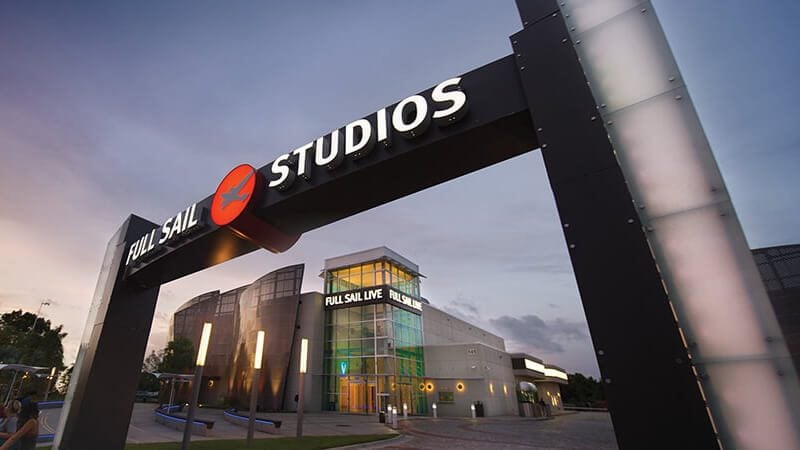How To
How to Launch an Internet Radio Station
You're a musician looking for a way to get more listeners. Or you're a manager, looking for a way to get more exposure for your artists. Or maybe you're just really good at making playlists, and you wish you had more of an outlet for them.
If you fit any of the descriptions above, you should consider launching your own Internet radio station. Through platforms like Radionomy, who provide the software, the servers, and the licensing, it's easier now than ever before.
"Radionomy is a platform for content creation," says Rae Palermo, Radionomy's U.S. Community Manager. "You're not starting a 'Radionomy station,' it's really your own station. Our focus is to keep everything free for the creative."
Getting your station up and running through Radionomy is relatively simple: create an account and use the Radio Manager Online (RMO) interface to set up your music boxes, playlists, podcasts, jingles, voice tracks, promos, and more, and then schedule up to 30 days worth of content. (For even more in-depth instruction, the company has created a series of YouTube tutorials that explain every step of the process.) Radionomy has more than 80,000 licensed songs in their library, but users also have the ability to upload their own .mp3s, record their own podcasts, promotions, and interviews, and broadcast live.
"What keeps people coming back to the stations is the extra content – the information about the artists and the idea of getting below the music," says Rae. "We really encourage people to infuse their personality. And it doesn't necessarily have to be music. We're seeing a deluge of podcasters upgrade and stream their podcasts as well."
Having a Radionomy station is free, as long as you're willing to allow the company to insert four minutes of ads for every hour of programming. (You're welcome to add your own sponsors and handcrafted ad content as well.) The perk: if you gain enough listeners, you'll start receiving a portion of the revenue from the ads Radionomy is able to sell.
You will need some basic equipment to start – at least a microphone and headphones – along with some ideas for how you'll want to schedule your music, interviews, podcasts, etc. Do you have something in particular you want to promote? Or a passion for a specific genre of music? Getting that figured out beforehand will make programming your content easier.
Once you're up and running, you'll promote your station the same way you'd promote anything else: by spreading the word. Radionomy's media player is embeddable, so Rae suggests embedding it onto your site, sharing it with other sites ("Give it away like candy," she jokes), and harnessing the power of social media.
"We have stations broadcasting from around the world, running the gamut from artists and labels to music aficionados and radio programmers," says Rae. "I think what we're looking at now is that people who might go to somewhere like SoundCloud to publish their music are finding us and realize this is another outlet for their passion – curation."
Artists like Talib Kweli have their own Radionomy stations, where they curate new music along with promoting their own, and Full Sail grads Sentel Allen and Aris Blossom (Entertainment Business Master's, 2011) have had success with the platform as well. Their station, HeartBeat Radi0, promotes hip-hop music on all levels – indie, underground, and mainstream. The duo uses the station to promote the artists they manage and develop through their own company, Rising Phoenix Entertainment Group, but they play undiscovered hip hop from other artists as well. They also share tips and advice for helping artists in the industry spread their music to wider audiences.
"We take submissions from artists around the world and if we believe in the sound and message of the music we'll promote it on our show," says Sentel. "We want listeners to tune in and hear something they've never heard before. I believe that's what makes us stand out from the rest."
Sentel's advice for students who want to start their own station: Just go for it! "Find any equipment you can get your hands on and just record and broadcast," he says.
Sentel also suggests social media as one of the best ways to initially promote your station. "It's where your own circle of like-minded individuals generally comes together anyway, so it should be used to its full advantage. You can organize and host events or attend other events to promote the station as well. Any way possible to get the information out is a plus when you're first building your brand. And honestly the great part is since it's the Internet, your listeners can have access to your station anywhere they have a connection."
Whether you’re ready to apply or just want to learn more about Full Sail University, our Admissions Representatives are here to help. Call us or request more information.
Keep Exploring
- For Parents
- Information Technology
- Facilities
- Sports Marketing & Media
- Sports
- Interactive
- Simulation & Visualization
- Mobile Development
- Financial Aid
- Instructional Design & Technology
- Life at Full Sail
- Games
- Art & Design
- Online
- Media & Communications
- Course Info
- User Experience
- New Media Journalism
- Certificates
- Alumni Updates
- News

